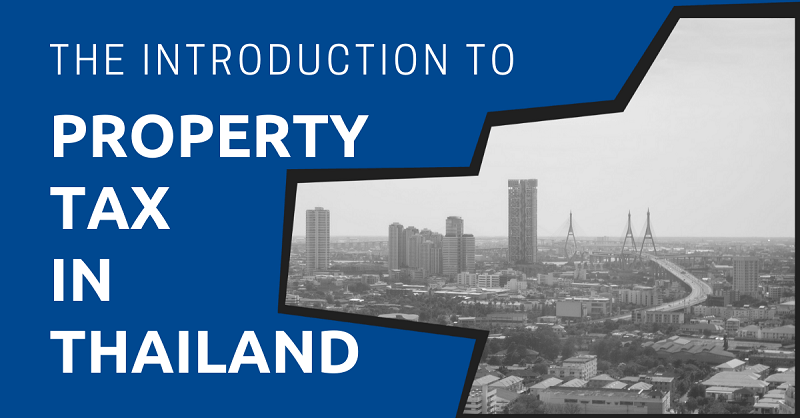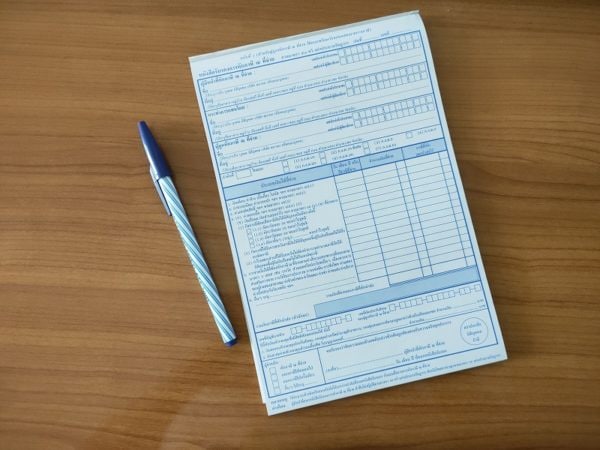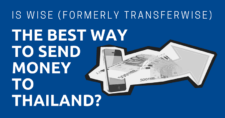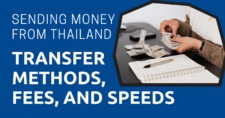
Whether you’re planning to buy a property in Thailand or you already have one, you might be obligated to pay taxes to the Thai government. There are a variety of taxes that they charge and conditions under which they’re applied.
It’s always a good idea to go through the list of taxes that you’re obligated to pay both with your real estate agent and your lawyer or go to the local district office themselves and ask them.
Here is a list of the various taxes that you’ll be obliged to pay when either selling or buying a property in Thailand.
"*" indicates required fields
Disclaimer: This article may include links to products or services offered by ExpatDen’s partners, which give us commissions when you click on them. Although this may influence how they appear in the text, we only recommend solutions that we would use in your situation. Read more in our Advertising Disclosure.
Contents
First Things First: Get Know the Registered Value of Your Property
The calculation for your property tax is based on the registered value of your property.
The registered value of the property is the price paid for the property and it can be used on the transfer documents.
Be aware that the terms ‘’assessed value’’ and ‘’registered value’’ can both be used to express the same thing because they are often recorded as being the same value on transfer documents.
The registered value should be a reflection of the true market value and it can’t be below the assessed value, which is the official government reckoning of the value of your property.
Transfer Tax
This is a tax that the buyer is obligated to pay and it is set at 2% of the registered value of the property.
Stamp Duty
This is levied at 0.5% of the registered value of the property and it’s payable if you are not liable for Business Tax. The seller is obliged to pay this tax at the time of the sale of the property.
Withholding Tax
The withholding tax is only liable to the seller. The tax rate differs.
If the seller is registered as a company then they’re obliged to pay 1% of the registered sale value or the appraised value of the property depending on which value is higher.
If the seller is an individual, a progressive taxation is applied as the value of the property increases on a scale of 0% – 35%.

The sale price is classed as gross income and then expenses are deducted according to Schedule B.
The total years of ownership are then used to divide the net income to arrive at the total obligation after the income has been assessed. In the case of a non-tax resident you will either pay the Withholding Tax or if you’re under a double treaty agreement between Thailand and your home country then the Withholding tax will become a tax credit.
A flat rate of 15% is applicable if you want to remit the income back to your home country.
Late submission penalties can be applied by the Thai government as they see fit.
Business Tax
The seller is obliged to pay this tax and it’s levied at 3.3% depending on whether the registered sale value or the appraised value is the higher value. The obligation is the same if you’re an individual or a business.
The building, housing, and land taxes are collected annually under the Land Tax Cut.
Renting out a property by an individual or putting it to commercial or housing uses will incur a 12.5% annual tax.
There are other taxes worth considering. The Land and Building Tax (2019) assesses taxes based on the value appraised by the government.
The fixed maximum rates are assessed by the type of land that it is classed as.
- Agricultural 0.15%
- Residential 0.30%
- Other 1.20%
- Vacant/Unused 1.20%
If the land is unused for more than 3 years then your rate will increase by 0.30% every 3 years and it will then be capped at 3%.
There are exemptions.
If your property is a residence and you own the land and the building and it is worth less than 50 million baht, then you’ll be exempt.
If your property is a building for residential purposes then you’ll be exempt if your property is worth less than 10 million baht.
If you’re the owner of agricultural land that is worth less than 50 million baht you’ll be exempt.
Because of this, you would see people start planting banana trees on their empty land in order to avoid this tax.
A beneficiary is also considered a taxable person under this act such as receiving rent. Estate managers, legal guardians of a minor or a disabled person or someone who represents a body corporate.
A change of ownership or purpose needs to be notified to the SAO or the sub-district administration within 60 days. Your tax obligation will begin on January 1st of the next year.
Rental Income Tax
The money that you collect from the rent is regarded as income and will be paid as personal income tax. You can check our article on Thailand Income Tax for Foreigners for additional information.
Tax Payment
You can pay your taxes online through your Thai bank account to the Revenue Department.
Bangkok Bank and Krungthai Bank both allow tax payments to be made at their branches.

If you do it at Krungthai Bank, there are four steps.
- The company such as a tax lawyer issues the tax slip.
- You can physically bring the tax bills to the bank. Your relevant company can print these out for you.
- The bank itself can issue you with the tax slip.
- Your company can then provide you with the tax receipt.
Alternatively, here’s other payment options that are open to you:
- If the amount that is owed is small you can pay via an ATM.
- Another option is to pay via the internet through the bank’s website.
- Your payment can be paid through the juristic person.
It is up to you to assess which method is best for you in order to legally pay your taxes. The payment process normally starts with the owner reporting a self-declaration to the SAO for land and building taxes.
Exemption
A foreigner who is living on a property or a building which is owned by a Thai company under a company structure is not obliged to pay Land and Property Taxes in Thailand. This is because the house is not regarded as being an ‘’owner occupied’’ building.
When Do You Pay Property Taxes?
Since there is no general property tax in Thailand the time to pay varies.
Taxes under the Land Tax Act are collected annually by the local government. The tax year runs from January 1st through to December 31st and the taxes for this period are due by March 31st.
If a property is rented out then the taxes will be due in February.
A Word of Warning
The local authorities periodically become pro-active and look for non-payers and you can be fined.
If you own a property through a Thai company, the fine and the assessed tax bill will be sent to you directly.
Prompt payment will curtail further investigations into your tax obligations.
Now, on to You
The property tax in Thailand is complicated and often overlooked by many people. If you own a property in Thailand, it is a good idea to check with a tax adviser or a tax lawyer to find out whether or not you are liable to any property tax.
Failing to do so can give you a large amount of fines.







